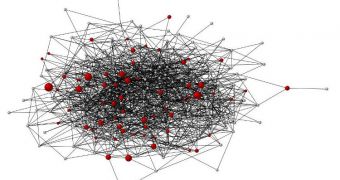During a recent scientific investigation, a team of researchers in the United States used the social media website Facebook to figure out how people form friendships, and what are the most likely steps they would take to accomplish this.
The research was funded through a grant from the US National Science Foundation (NSF), and was conducted by a team of three sociologists at the Harvard University. The work is detailed in this week's issue of the esteemed journal Proceedings of the National Academy of Sciences (PNAS).
One of the most important objectives in the new research was to figure out how we select our friends. Related to that, the team also sought to determine how we use these friendships to transmit our new tastes and ideas. These relationships were selected because they are the basic building blocks of society.
Therefore, by studying them, researchers could gain sufficient data to understand more complex issues, such as current patterns of social segregation, mental, emotional and social support among friends, the mechanisms through which inequality appears and develops and so on.
At the same time, doctors view social networks as a way of influencing a group's health behaviors. A study conducted last year showed, for example, that obesity can spread throughout social circles. On the other hand, advertisers want to use social circles to promote their products.
“At the end of the day, we have to ask ourselves how much of online interaction – and friendship formation in general – really is about reaching out to new people and learning about totally new ideas and perspectives that don't really interest us,” Kevin Lewis explains.
The expert – a PhD candidate at Harvard and a coauthor of the PNAS paper – makes a valid point. Some people go online only to search for perspectives and ideas they already like and agree with, whereas others purposefully search for dissenting opinions.
“Our research is unique in that it uses data on a complete social network of respondents--a cohort of students from the same college, and tracks the evolution of that network over time,” explains principal study investigator Jason Kaufman, also of Harvard.
“Because members of the network were, at the same time, listing what they perceived to be their 'favorite' music, movies and books, we were able to closely examine the co-evolution of both their social networks and their cultural tastes,” the expert concludes.

 14 DAY TRIAL //
14 DAY TRIAL //